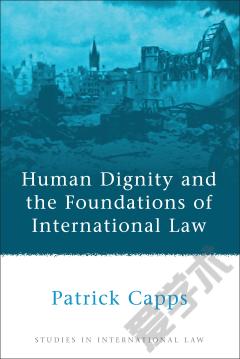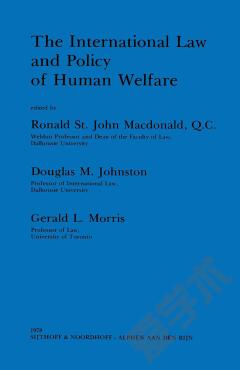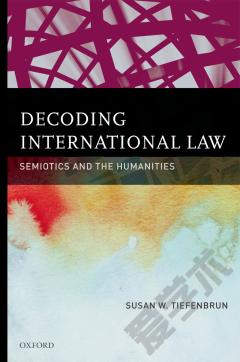Human Dignity and the Foundations of International Law
Introduction 1 Philosophical Problems for International Lawyers Conceptions of International Law in Space and Time Scepticism in the Philosophy of International Law Theory and Practice Conclusion 2 The Methodological Problem The Methodological Problem in Legal Science The Methodological Problem Is International Law Racist? The Ontological Problem Conceptual Analysis and Focal Analysis Conceptual Analysis Focal Analysis Conceptual Analysis, Focal Analysis and the Raw Data The Legal Scientist Conclusion 3 The Conceptual Analysis of International Law Hart's The Concept of Law as a Form of Conceptual Analysis Legal Positivism Hart's Concept of Law Hart's Non-ambitious Concept of Law Hart's Ambitious Concept of Law International Law as an Indeterminate Form of Law Usages and Conventions The Legal Scientist, the Ordinary Language User and the Legal Official Law as a Social Practice Theoretical Values Law as a Conventional Practice Paradigm Cases and the Internal Point of View Conclusion 4 Focal Analysis and Ideal-Types Purposivity and International Law Human Dignity and the Purpose of International Law Normative Positivism and International Law Focal Analysis and Ideal-Types Action and Axiology Ideal-Types The Ideal-Type and Collective and Institutionalised Social Practices General Concepts Weber on International Law Ideal-Types and Practical Reasonableness The Concept of International Law Relies upon the General Concept of Law Purpose and Meaning Practical Reasonableness and Ideal-Types Components of the Concept of International Law 5 Practical Reasonableness and Human Dignity The Idea of Human Dignity Human Dignity as Empowerment The Substantive Question Generic Features of Agency Distributive and Authoritative Questions The Authoritative Question Action and the Generic Features of Agency The Universalisation of Generic Rights The Distributive Question The Concept of International Law Dignity in the Kingdom of Ends From the Kingdom of Ends to Positive Law Conclusion 6 The Logic of the Autonomy Thesis The Autonomy Thesis Structure of the Autonomy Thesis Hobbes' Version of the Autonomy Thesis Kant's Version of the Autonomy Thesis Oppenheim's Version of the Autonomy Thesis Weil's Version of the Autonomy Thesis Failure of the Autonomy Thesis Adjudication and Function Legitimacy as a General Condition for the Success of the Autonomy Thesis The Autonomy Thesis and International Law Public Practical Reasons Practical Reasonableness and the Law Conclusion 7 Law as a General Concept The Bare-Autonomy Thesis and the Integrated-Autonomy Thesis Moral Reasoning and Law Ideal and Non-ideal Theory Justification of the Autonomy Thesis Immorality of the State of Nature Law as a Community Governed by an Omnilateral Will Kant's Justification for Law Enforcement Justification of the Integrated-Autonomy Thesis Law Constitutes our Freedom from Dependency Rousseau's Concept of Law The General Concept of Law Conclusion 8 The Foundations of the International Legal Order A Justification for International Law Civil Incorporation and the Sovereign State The State and Civil Incorporation Sovereignty and Collateral Moral Rights The State and Agency International Legal Order Kant's 'State of War' Why is the State of War Not-rightful? The Integrated-Autonomy Thesis and the Sovereignty of International Law Institutional Design International Legal Order as a Suprastate System International Legal Order as an Interstate System Interstate or Suprastate Institutional Design? Conclusion Lauterpacht and the Progressive Interpretation of International Law Unanswered Questions 9 The Discontinuity Thesis Alternatives to International Legal Order Sovereign States are Not Similar, in Relevant Ways, to Human Agents A Rejection of the Universal State, Not International Legal Order The Sovereign State Cannot be Considered an Agent Transgovernmental Law Instead of International Law? Rejection of International Legal Order Sovereign States are Not Similar, in Relevant Ways, to Human Beings Prudence and International Legal Order The Environment in which Sovereign States Find Themselves is Not Similar in Relevant Ways to the Environment in which Human Beings Find Themselves Are International Relations Not Unreasonable? Approximations to International Law Surrogates, Analogues and Approximations The Possibility of Perpetual Peace Conclusion 10 International Legal Order in Ideal and Non-ideal Theory Ideal Theory Norm-Creation Custom Interpretation Enforcement Failure of Interstate Design for Ideal Theory Non-Ideal Theory Juridical and Moral Concepts of the State Institutional Architecture and Norm-Creation Enforcement Self-Defence The Concept of International Law and the Role of the International Lawyer Conclusion Bibliography Index
{{comment.content}}








 京公网安备 11010802027623号
京公网安备 11010802027623号